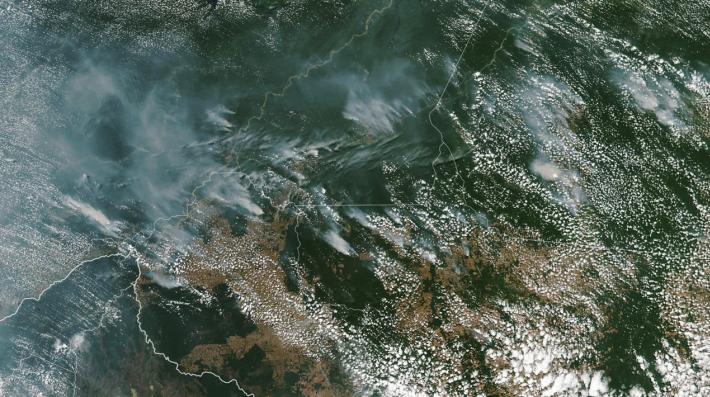By Inger Andersen*
The ongoing fires in the Amazon rainforest are a harsh reminder of the environmental crises facing the world – of climate, of biodiversity and of pollution.
The ongoing fires in the Amazon rainforest are a harsh reminder of the environmental crises facing the world – of climate, of biodiversity and of pollution.
We cannot afford more damage to this precious natural resource, which is home to 33 million people – including 420 indigenous communities -, 40,000 plant species, 3,000 freshwater fish species and more than 370 types of reptiles.
The Amazon, alongside other major forests such as the Congo Basin and Indonesian rainforests, is a natural defense against global warming due to its ability to mitigate and adapt to climate change. Sustainably managing it will be a critical part of reversing the damage already done.
Failure to halt the damage will have severe impacts on human health and livelihoods, decimating rich biodiversity and leaving the world more exposed to the climate crises and yet more disasters.
The UN Environment Programme stands ready to work with Member States – including Brazil – in responding to this present crisis and in support of their efforts to meet the ambitious targets of the Paris Agreement.
Brazil has a long tradition of action to protect the Amazon and we will continue to work with the Government and people of Brazil, providing the science, tools and assessments to guide evidence-based policy, convening Member States to address pressing environmental challenges, and advocating on behalf of the Amazon and other forests across the world.
At the Secretary-General’s Climate Action Summit this September, we will join Member States, UN colleagues, the private sector and civil society in calling for stronger protections for the earth’s forests and for the environmental defenders who spend their lives working to save these resources.
We urge Member States to come together and take necessary measures to extinguish the ongoing fires, to prevent further fires from being started and to protect the Amazon for the benefit of Brazil and the world.
*Statement by Inger Andersen, UN Under-Secretary-General and Executive Director of the UN Environment Programme










